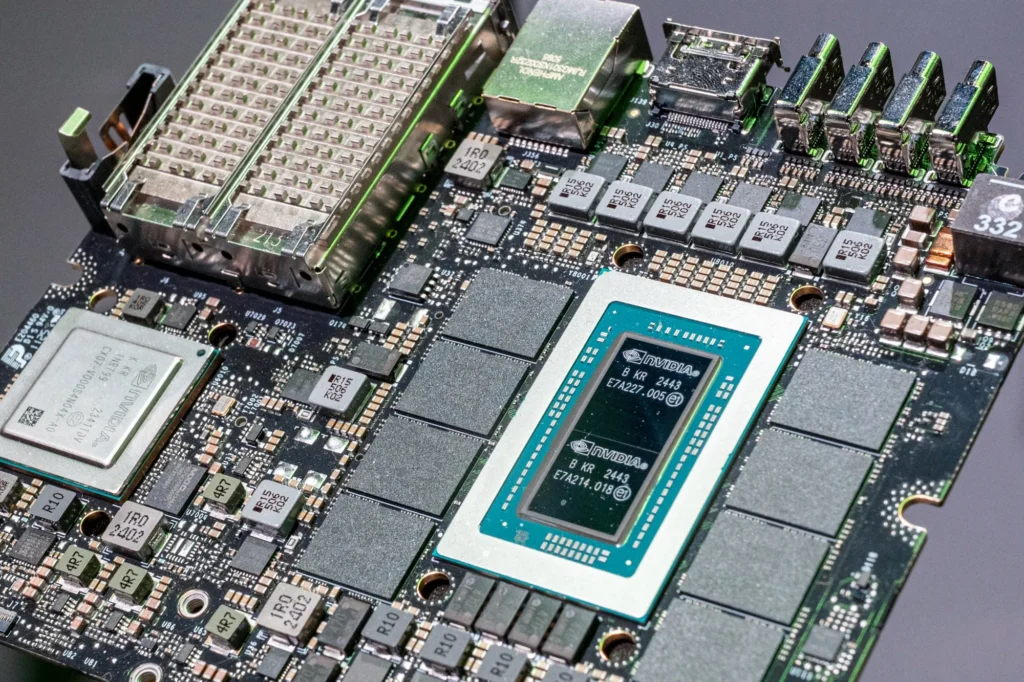A Shifting Policy in Motion
The United States is considering a major policy shift that could allow the United Arab Emirates (UAE) easier access to high-performance Nvidia chips. This potential move is being reviewed just as former US President Donald Trump is planning an official visit to the region. The timing of the visit has triggered conversations on diplomacy, security, and technology between Washington and Abu Dhabi.
For the UAE, gaining access to Nvidia’s powerful chips would be a game-changer. These chips are crucial for artificial intelligence (AI), defense systems, and national innovation goals. With Trump preparing to re-enter the global diplomatic stage, the US may look to reframe its strategic partnerships in the Middle East, and easing Nvidia chip curbs could be one such gesture.

What Are Nvidia Chip Curbs?

Nvidia chips, especially those designed for AI and machine learning, are among the most powerful in the world. These chips have been subject to strict export controls by the US government, particularly when it comes to certain countries and regions.
The restrictions are mainly put in place to prevent sensitive technology from falling into the wrong hands or being used in ways that could undermine national security. Over the past year, these controls have tightened, with countries like China facing the strictest barriers.

The UAE has previously been on the edge of these restrictions, caught between growing as a tech-savvy hub and maintaining its close ties with US security frameworks. This reevaluation could change that narrative.
Why the UAE Matters
The UAE has positioned itself as a regional leader in innovation, especially in AI and emerging technologies. With massive investments in smart cities, digital infrastructure, and automation, access to Nvidia chips is critical.
The country is also a major non-NATO ally to the US. Its cooperation in defense, intelligence, and regional stability often earns it special status in trade and technology partnerships. Easing chip curbs would not only boost the UAE’s innovation goals but could also deepen tech collaboration between the two countries.
Explore UAE’s Smart City Projects
Trump’s Visit: A Strategic Signal?
Donald Trump’s planned visit to the UAE is creating a stir not just for its political implications but also for what it symbolizes—renewed interest in Middle East diplomacy from a former US leader with global influence.
His presence may be viewed as a bridge between past policies and future possibilities. It’s not uncommon for unofficial diplomacy to unfold through such visits. Sources suggest Trump’s team is exploring opportunities in energy, security, and digital trade.
While the visit remains unofficial for now, it signals growing interest from US political figures in strengthening relations with the Gulf.
Trump’s Middle East Policy Legacy
What’s at Stake for Nvidia?

From Nvidia’s perspective, expanding access to its chips in the UAE represents both an economic opportunity and a strategic challenge. On one hand, the UAE offers a wealthy market eager to invest in AI technology. On the other hand, easing curbs too quickly could risk geopolitical backlash, especially from countries that are still under restrictions.
The company has largely complied with US export rules but continues to lobby for clearer, more flexible policies. With AI advancing rapidly, being locked out of promising markets like the UAE could slow global progress and innovation.
The Bigger Picture: Tech, Trust, and Tension
Easing Nvidia chip curbs is more than just a trade issue. It reflects how nations are navigating the balance between economic growth and national security in a world driven by digital power.
For the US, allowing Nvidia technology to flow more freely into trusted allied countries could strengthen global tech alliances. For the UAE, it’s about stepping fully into the role of a global innovation leader.
This shift also comes amid increasing tech competition with China, prompting the US to reconsider who its key partners are in AI and advanced computing.
What Happens Next?
The US government is still in the early stages of reviewing its position on Nvidia chip exports to the UAE. The process may involve negotiations, security assessments, and diplomatic dialogues. But the conversation has already begun.
If successful, the easing of restrictions could pave the way for similar decisions with other allied nations, setting a precedent for how powerful technologies are shared across borders.
For now, the eyes of the tech and political world remain on Washington and Abu Dhabi—waiting to see what future unfolds in silicon and strategy.
Read More: UAE-Backed ALTERRA Invests $100 Million in Green Energy Platform Evren














